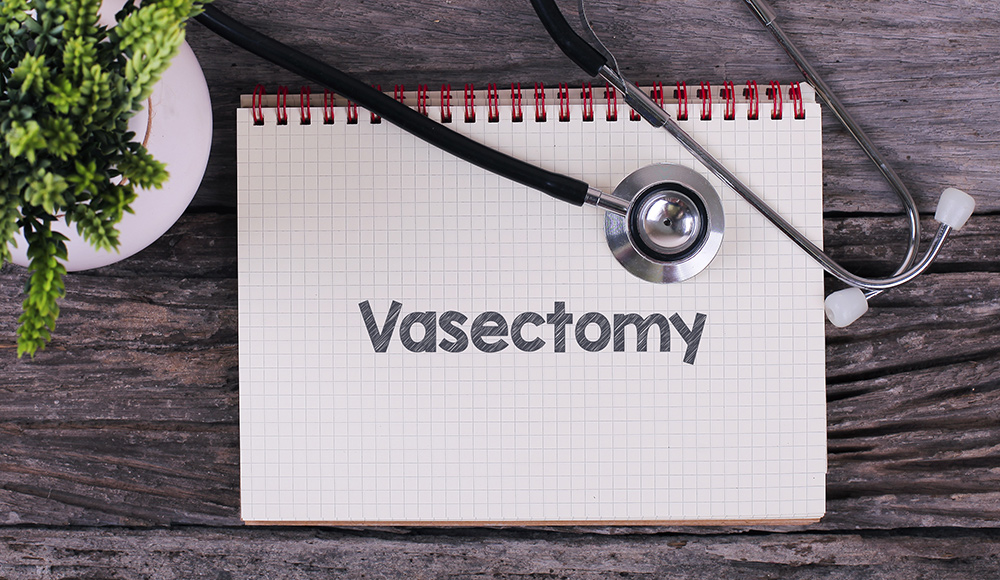Last updated on May 15, 2025
If you’re considering a vasectomy, you’ve probably thought about how comfortable you’ll be during the procedure. Selecting the best anaesthesia for a vasectomy plays a crucial role in your overall experience and comfort.
At The Cooper Clinic, vasectomies are routinely performed under local anaesthetic, but IV sedation (conscious sedation) and oral sedation is also available at selected locations across New Zealand. This guide will help you understand your anaesthetic options clearly so you feel informed and comfortable when making your decision.
Why Anaesthesia Matters in Vasectomy Procedures
Anaesthesia is an essential component of a vasectomy, helping to ensure the procedure is safe and comfortable. The right anaesthetic minimises discomfort, eases anxiety and helps patients recover quickly so they can return to their regular routines as soon as possible.
Men undergoing a vasectomy typically have two primary concerns: how painful the procedure might be and whether being awake during surgery will cause anxiety. Understanding your anaesthetic choices will help address these common worries.
Anaesthetic Options for Vasectomy
The Cooper Clinic primarily offers two forms of anaesthesia for vasectomy procedures: local anaesthetic and IV sedation.
Local Anaesthetic
A local anaesthetic involves injecting medication directly into the skin around the tubes carrying sperm (vas deferens) to numb the area. Local anaesthetic is standard practice for no-scalpel vasectomies, a method known for being minimally invasive, with fewer complications and quicker recovery times.
What to expect:
- You’ll be awake and comfortable throughout the procedure
- You may feel a brief sensation (such as a pinch or pressure) during the administration of the anaesthetic.
- Once the anaesthetic takes effect, most clients report that the procedure is well tolerated.
- The procedure generally takes less than 30 minutes
Advantages of local anaesthetic:
- Quick recovery time
- Lower risk of side effects or complications compared to general anaesthesia
- Most patients can return home shortly after the procedure
Local anaesthetic is ideal for the majority of men, especially those comfortable with minor medical procedures and who have no significant anxiety about being awake during the surgery.
IV Sedation (Conscious Sedation)
IV sedation, also known as conscious sedation, is a medication administered through a vein to help you feel deeply relaxed and less aware during the procedure. It’s not a full general anaesthetic – you remain conscious but feel calm and may not remember much of the procedure afterward.
At The Cooper Clinic, IV sedation is offered at selected clinics in New Zealand and is suitable for men who feel particularly anxious or those undergoing a slightly more complex procedure.
What to expect:
- You’ll feel relaxed, drowsy and less aware of the procedure
- Recovery takes slightly longer compared to local anaesthetic alone – you’ll need someone to drive you home
- The procedure is comfortable, with minimal or no memory of the experience
Advantages of IV sedation:
- Helps reduce anxiety for those who feel nervous about medical procedures
- Creates a calm, relaxed experience with little or no memory of the procedure
- Still allows a quick recovery (no general anaesthesia required)
- May be more suitable for those with a low pain threshold or heightened sensitivity
- Often ideal for patients who want a more hands-off, stress-free experience

Local anaesthetic is the most common form of anaesthesia for vasectomy, offering a straightforward approach with minimal recovery time.
Local Anaesthetic vs IV Sedation: What’s Right for You?
Choosing between local anaesthetic and IV sedation largely depends on personal preferences and medical considerations.
| Consideration | Local Anaesthetic | IV Sedation |
|---|---|---|
| Procedure Experience | Awake, comfortable | Drowsy, relaxed, minimal memory |
| Recovery Time | Faster, immediate return home | Slightly longer, needs assistance |
| Anxiety or Fear | Suitable for most men | Ideal for anxious patients |
| Availability | Available at all clinics | Select locations in NZ |
Both methods are safe, highly effective and designed to maximise patient comfort. The majority of patients comfortably undergo vasectomies with local anaesthetic alone, but IV sedation remains a valuable option for specific circumstances.
Final Thoughts
Understanding the anaesthetic options available for your vasectomy helps you approach the procedure with confidence. Whether you choose local anaesthetic for a quick recovery or IV sedation for enhanced comfort, The Cooper Clinic is committed to delivering a safe, comfortable and professional experience. For personalised advice on anaesthetic options and to book your initial consultation, contact The Cooper Clinic today.
Learn more about no-scalpel vasectomy or get to know The Cooper Clinic team.
How to book a vasectomy appointment
- Fill out our online booking form
- Call us: 0800 884 408
- Email us: info@thecooperclinic.co.nz
Frequently Asked Questions
Does a vasectomy hurt with local anaesthetic?
Most men describe only mild discomfort (similar to a minor pinch) during the initial administration of local anaesthetic. The procedure itself is generally well-tolerated due to the effective numbing of the treatment area.
Can I choose IV sedation for my vasectomy?
IV sedation is available at selected Cooper Clinic locations across New Zealand. You can discuss availability and suitability during your initial consultation.
Is local anaesthetic enough for a no-scalpel vasectomy?
Yes, local anaesthetic alone is highly effective and sufficient for a no-scalpel vasectomy, which is designed to minimise trauma and discomfort.
What are the side effects of vasectomy anaesthetic?
Side effects from local anaesthetic are rare but can include temporary numbness, slight bruising, or swelling around the injection site. IV sedation may cause drowsiness, dizziness, or mild nausea post-procedure.
How long does the anaesthetic last after vasectomy?
Local anaesthetic typically wears off within a few hours, while residual effects of IV sedation might last slightly longer, typically clearing within 24 hours.







